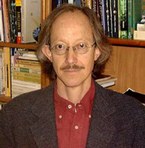

Multimedia | Vidéo de la conférence du Pr Arturo Escobar
La conférence du Pr Arturo Escobar intitulée "Territories of difference : the political ontology of the ‘Right to Territory’", qui a eu lieu le premier jour du second workshop international organisé par SOGIP
ARTURO ESCOBAR
Kenan Distinguished Professor of Anthropology, University of North Carolina-Chapel Hill
Director, Institute of Latin American Studies, UNC-Chapel Hill, intitulée
TERRITORIES OF DIFFERENCE : THE POLITICAL ONTOLOGY OF
THE ‘RIGHT TO TERRITORY’
Source : Canal U
Producteur :Direction de l’audiovisuel de l’EHESS (Dir. Jean-Claude Penrad). Réalisateur(s) : Kergraisse Philippe / Conditions d’utilisation / Copyright : © Direction de l’Audiovisuel / EHESS / 2013
La conférence a eu lieu le 18 juin 2013 à l’EHESS, Amphithéâtre F.Furet, 105, Bd raspail, 75006 Paris.
This presentation argues that the rights of indigenous people and afrodescendant and peasant communities to their territories can be seen in terms of two intertwined processes : the problematization of ‘national’ identities, with the concomitant emergence of indigenous, afrodescendant, and peasant identities ; and the problematization of life, with reference to the crisis of biodiversity, climate change, and the intensification of environmental destruction by extractive industries. Both processes converge in the territorial conceptualizations and practices maintained by communities and their ethno-territorial organizations in many parts of the world. The paper develops a framework for the political ontology of territories. By interrupting the globalizing project of constructing One-world (capitalist, liberal, secular), many indigenous, afro-descendant, and peasant communities may be seen as engaged in ontological struggles, that is, as involving other life models. These struggles can be interpreted as important contributions to ecological and cultural transitions towards a world many world fit (the pluriverse). The argument is illustrated with the case of afrodescendant struggles in the Colombian Pacific region, particularly their reframing and radicalization of territorial struggles against the armed, developmentalist, and extractivist onslaught of the past ten years.
Arturo Escobar est professeur émérite d’anthropologie et directeur de l’Institut des études latino-américaine à l’Université de Chapel Hill, en Caroline du nord. Ses recherches actuelles portent sur les interactions entre l’État, le capital/la finance et les mouvements sociaux dans une région forestière de Colombie. Il examine les interactions entre ces acteurs à partir des luttes culturelles et politiques sur la définition, et le contrôle, des ressources de la biodiversité de la région. Il est par ailleurs membre d’un groupe de recherche sur les mouvements sociaux latino-américains depuis la fin des années 1980. Ces travaux sont disponibles sur le site http://www.unc.edu/ aescobar/
Source de la photo : http://anthropology.unc.edu/people/faculty/aescobar


 Version imprimable
Version imprimable